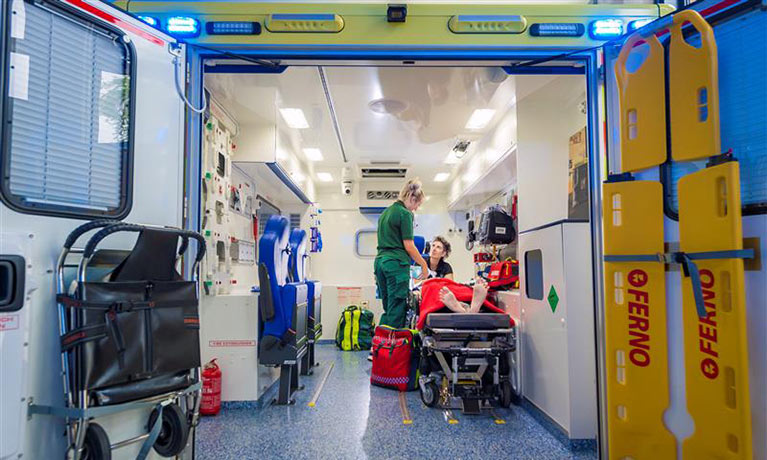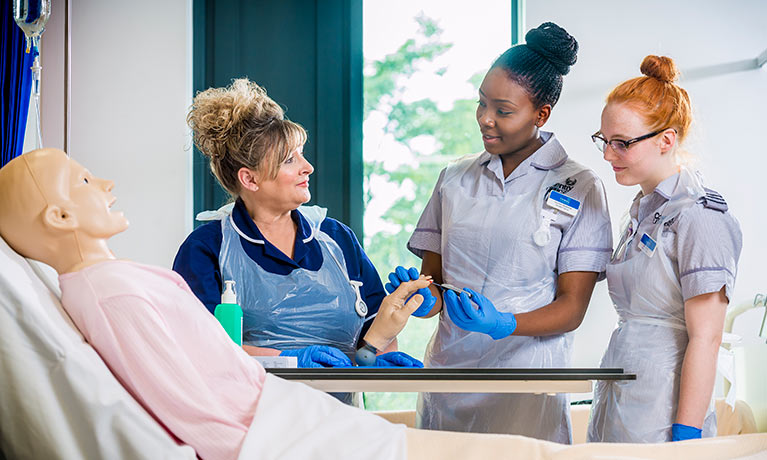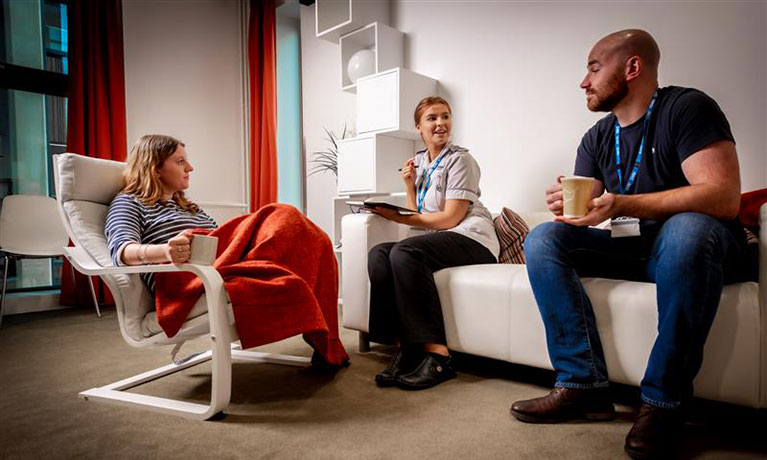Search
Global Public Health MSc
Study level: Postgraduate
The Global Public Health MSc offers you the opportunity to engage in both the foundations and global context of public health through current examples and anthropological perspectives.
Year of entry
2024-25
Location
Coventry University (Coventry)
Study mode
Full-time
Duration
1 year full-time
Course code
HLST302
Start date
January 2025
Course overview
Public health is everybody’s business. This course engages with a global context and cultural analysis of health to equip you with the skills to be future public health leaders.
The course aims to:
- provide a substantive knowledge of key public health perspectives
- offer a global perspective on public health phenomenon
- support your learning with topical global case studies.
Joint Top Modern University for Career Prospects
Guardian University Guide 2021 and 20225 QS Stars for Teaching and Facilities
QS Stars University RatingsTop 5 UK Student City in England (Coventry)
QS Best Student Cities Index 2024Why you should study this course
- study key public health principles
- contemporary examples will be employed
- opportunity to engage with the medical anthropology perspective
- debate current public health dilemmas
- analyse large-scale public health incident responses.
Accreditation and professional recognition
The degree is accredited1 and recognised by the following bodies:

Chartered Management Institute
This course includes a 10-credit module accredited by the Chartered Management Institute (CMI) - Leading and Creating Organisational Health and Wellbeing. Students who successfully complete the module and meet the CMI learning outcomes will gain a Level 7 Certificate in Strategic Management and Leadership Practice.
What you'll study
This master’s course will prepare students to become the public health leaders of tomorrow. Through the acquisition of key skills and knowledge, you will engage in a wide range of perspectives to build a well-rounded understanding of global public health.
Topics will include epidemiology, medical anthropology and the use of evidence to inform wider discussion on social determinants, emerging issues and managing complex incidents. Through a dissertation, you will consolidate your learning in an area of your interest.
We regularly review our course content, to make it relevant and current for the benefit of our students. For these reasons, course modules may be updated.
How you'll learn
This course involves a combination of face-to-face sessions and self-directed study. The face-to-face sessions will be delivered as a mix of lectures, seminars and workshops to mirror a real-world environment and suit the material being discussed. You will be encouraged to engage in additional material provided via the virtual learning environment (VLE), as well as look beyond the course materials to develop the competencies and independent intellectual confidence expected at master’s level. When available, opportunities to engage in a broad range of public health issues through simulation activities may be offered.
This course includes innovative modules which will allow you to engage in up-to-date topical issues in global public health and respond both individually and in groups to challenging scenarios supported by interactive and discursive pedagogic approaches.
Teaching contact hours
As a full-time student, the number of full-time contact hours may vary from semester to semester, however, on average, it is likely to be around 10-12 contact hours per week in the first and second semesters, dropping to around 8 contact hours per week in the third semester as you become a more independent learner.
Additionally, you will be expected to undertake significant self-directed study of approximately 25 hours each week, depending on the demands of individual modules.
The contact hours may be made up of a combination of face-to-face teaching, individual and group tutorials, and online classes and tutorials.
As an innovative and enterprising institution, the university may seek to utilise emerging technologies within the student experience. For all courses (whether on-campus, blended, or distance learning), the university may deliver certain contact hours and assessments via online technologies and methods.
Since COVID-19, we have delivered our courses in a variety of forms, in line with public authority guidance, decisions, or orders and we will continue to adapt our delivery as appropriate. Whether on campus or online, our key priority is staff and student safety.
Assessment
This course will be assessed using a variety of methods which will vary depending upon the module.
Assessment methods include:
- open book tests
- essays
- group work
- presentations
- reports
- projects
- coursework
- exams
- individual assignments.
The Coventry University Group assessment strategy ensures that our courses are fairly assessed and allows us to monitor student progression towards achieving the intended learning outcomes.
Entry requirements
Typical offer for 2024/25 entry.
Fees and funding
2024/25 tuition fees.
| Student | Full-time | Part-time |
|---|---|---|
| UK, Ireland*, Channel Islands or Isle of Man | £11,200 | Not available |
| EU | £11,200 per year with EU Support Bursary** TBC per year without EU Support Bursary** |
Not available |
| International | TBC | Not available |
For advice and guidance on tuition fees3 and student loans visit our Postgraduate Finance page.
We offer a range of International scholarships to students all over the world. For more information, visit our International Scholarships page.
Tuition fees cover the cost of your teaching, assessments, facilities and support services. There may be additional costs not covered by this fee such as accommodation and living costs, recommended reading books, stationery, printing and re-assessments should you need them.
*Irish student fees
The rights of Irish residents to study in the UK are preserved under the Common Travel Area arrangement. If you are an Irish student and meet the residency criteria, you can study in England, pay the same level of tuition fees as English students and utilise the Tuition Fee Loan.
**EU Support Bursary
Following the UK's exit from the European Union, we are offering financial support to all eligible EU students who wish to study an undergraduate or a postgraduate degree with us full-time. This bursary will be used to offset the cost of your tuition fees to bring them in line with that of UK students. Students studying a degree with a foundation year with us are not eligible for the bursary.
Facilities
The master’s degree will be delivered at Coventry University main campus.
Our multi-million-pound Alison Gingell Building features a range of mock healthcare settings, including hospital wards, ambulance, therapy suites and community houses, allowing you to replicate real-life situations.

Alison Gingell Building
Get hands-on experience simulating real-life situations with our therapy suites, community houses and other real-life environments.

Mock Hospital Wards
Our mock hospital wards and critical care settings give you the chance to experience patient scenarios in a real-world environment.

Community Houses
Our two full-size community homes can be used for sessions simulating working with patients outside of a hospital setting.
Careers and opportunities
On successful completion of this course, you will have knowledge of key global public health phenomena and a comprehensive understanding of related contemporary issues. You may wish to continue to further academic study within this field.
Further study
You could continue to PhD study within a related area.
Graduate Immigration Route visa
Based on current information from the UK Government, international students whose study extends beyond summer 2021 may be eligible for a visa under the UK Government’s Graduate Immigration Route, which will enable students to stay and work, or look for work, in the UK at any skill level for up to two (2) years. Check the most up to date guidance available to check your eligibility and any updates from the UK Government before making an application or enrolment decision.
How to apply
You may also like





